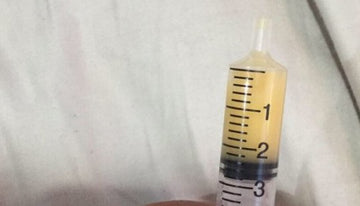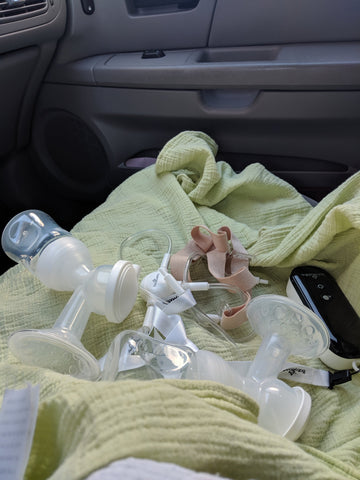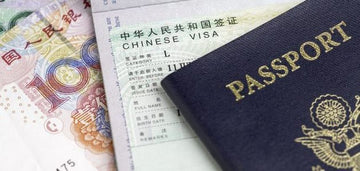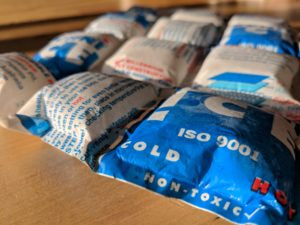Ready? Set? Go! What to Pack in your Hospital Bag to Kick-start your Breast Milk Supply
Mar 02, 2019
The nursery is stocked and ready. Diapers and tiny bodysuits are tucked inside drawers, ready to embrace your new arrival. You’re putting the final touches on your birth plan, and important to you is breastfeeding. All mothers who decide to breastfeed go through the worries of, “When does my milk come in? What if my milk doesn’t come in? How do I know I am making enough milk to feed my baby?”
You have enough emotions flowing through your body when you head to the hospital to have your baby, you don’t need any more stress by worrying about breastfeeding and your milk supply. Here’s a few key things to pack in your hospital bag to assist with breastfeeding and help ensure a good milk supply right from the start.
- Oral Syringes
The first liquid gold your body will produce once the baby is delivered is called colostrum. This is a thick, honey-like substance that will feed your baby until your milk comes in - anywhere from a few days to a week. The best way to collect colostrum is to hand express it into a spoon or shot glass (once home and it’s getting more watery) and then suck it up into 2.5-10ml syringes to feed to baby later. Just store them plunger side down in a cup in the fridge.
- Not your breast pump
Since you won’t need to pump until after your milk comes in, you don’t need to take up space in your bag by hauling it to the hospital. Leave your pump at home, but have your parts cleaned and sterilized to start using once you are back home. Do not pump at all until your milk is in; generally, a few days to a week after arrival. You don’t want to waste the extremely nutrient rich colostrum in pump tubing and parts.
- Journal and pen to track input and output
Tracking your input (food and water intake) and output (time at which breast and amount produced when expressing), as well as baby’s input (time at which breast or amount syringe fed) and output (wet/dirty diapers) helps take the stress off remembering it all. It’s a good practice for the first few weeks or months until you find your rhythm.
You don’t want to realize six days into a constipated and fussy baby that you can’t remember what you ate last Tuesday. It’s much easier to look at your journal and see that kiddo is missing their regular poo shortly after you ate broccoli, or that your production seems to track better when you scarf down some oats. It’s also a good way to make sure you’re staying accountable to drinking enough water, which is key to a good supply!
There are apps available for your smartphone if you prefer, but I prefer a good old-fashioned notebook and pen. I’m going to be using this one when baby #3 gets here in May:
The key to a healthy start to your milk supply is getting your boobs on a schedule – not your baby. Newborn babies like to sleep, many for several hours at a time. You should be feeding or expressing every 2.5-3 hours for the first few weeks to establish your milk supply. If baby does a feeding only from the left breast, hand express the right. If baby takes a 4 hour nap, hand express from both.
Remember: An empty boob makes milk.
But what if baby wakes up right after I express? Great! Feed from both breasts to get those last drops out and then feed from that syringe of colostrum you just expressed (or bottle once a few weeks old) to top off baby’s tank. Nurse on demand, but make sure you don’t go longer than 3 hours between expressing milk.
Doula Pro Tip for packing the bag: You lay out the stuff you want packed in your bag, but have your partner pack it. That way when you're mid-labor asking for your chapstick they know exactly where it is!
*A NICU stay or any other unexpected issues can derail your plans, but it doesn’t mean you can’t still have a successful breastfeeding experience. In any unforeseen circumstances, it is best to consult your doctor and pediatrician to make the best decision for you and your baby. Don’t be afraid to ask a Lactation Consultant to help teach you how to hand express too!





